Frederik Hansson: The Fashion Industry Entrepreneur Behind Swagger DAO


Creating high-quality fashion products in the blockchain space is not the most straightforward job if you are coming from the fashion industry. Yet Frederik Hansson’s innovative vision has brought him to the blockchain community – and NEAR Protocol specifically – to marry his passion for fashion with technology.
As a life-long fashion enthusiast and entrepreneur, Frederik’s story began at the early age of 12 when he became intrigued by fashion and street culture, in the early versions of sneakers. Originally from a small town in the countryside of Denmark, fashion broke Frederik out of his bubble, and introduced him to a cosmopolitan world of design and creativity.

“Basically I come from a small town in the countryside of Denmark. It is a super small country with below 6 million people, a honey pot fairy tale country where we found the recipe of the perfect life and solutions. But it also strangles creativity and progress.”
Back during Frederik’s childhood, the internet was still in its infancy and streetwear media did not exist. While today we know what to expect on the shelves of a store based upon its website or online catalogue, Frederik lived at a time when he had to hunt for special products from certain regions of the world, or times of the year. He remembers google translating Japanese websites to find a specific rebrand of a product, or travelling all the way from Denmark to New York to buy a specific item in the early 2000s. Fashion was a business built around quality, scarcity, and creativity. Before ecommerce, you had to dig.
While Frederik was looking for ways to enter the fashion industry in Denmark, the ethos of streetwear was rising in the US. Kids there were all about a new sub-genre that capitalized on comfort but also culture and hip-hop music to inspire identity inclusion.
Throughout his teens Frederik started working in a clothing store, as a way of learning more about the industry and discovering emerging fashion trends. Although the job was less exciting at the time – counting and stocking items, managing inventory – it was an early entrance into the fashion scene.
In the following years during business school, Frederik cut his teeth as an entrepreneur by managing a number of different side hustles: He worked at a sales service, got admitted to the business gymnasium, switched to a slightly bigger store and finally got into a fashion design school in Copenhagen. All of this was to pave his way into the Fashion Industry.

While studying business, Frederik did multiple internships and worked at some of the best contemporary clothing stores in Copenhagen. His network was quite small back then but his entrepreneurial motivation and the success of his parents in establishing their own business, made him believe that hard work pays off.
“I was lucky to have a direction and a pathway from an early age. I come from parents who have built their own company as well, so I have always had great role models around me. I have had that upbringing mentality that you have to work hard for something you want. And if you treat people nicely, they will pay you back in some way – even if it is not all at once.”
And it did. Today a lot of Frederik’s connections in Copenhagen are like-minded frontrunners in the industry that are also digitally forward thinking. Frederik has also worked his way into a highly influential position helping introduce Scandinavian brands to the industry, and bringing the industry to Denmark:
He collaborates with all of the big fashion weeks including really big institutional players. He works and collaborates with key industry players such as danish B2B sales platform Traede, and JOOR, the biggest B2B sales platform in the world that partners with ‘the big fish’ like Calvin Klein, Jimmy Choo and Isabel Marant. Both platforms take care of the product management of 1500-2000 brands. In Frederik’s entrepreneurial eyes, the fact that they are not working with anything in the crypto-verse yet is a huge window of opportunity.
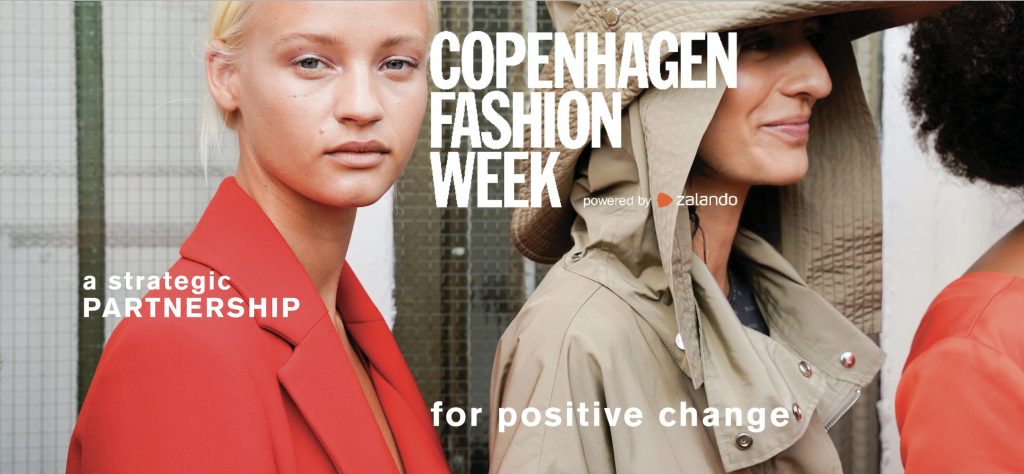
Back in 2011-2012, the Copenhagen Fashion Week, was only ramping up (today it’s one of the leading and most sustainable fashion events in the Nordics). Inspired by the ambition of bringing the industry onto a new level of sustainability, Frederik worked with a number of Scandinavian menswear brands including Samsøe Samsøe, Soulland, Norse Projects, Libertine-Libertine and doing consultancy for brands such as Levi’s and Axel Arigato through the last 10 years. In taking these brands into the mainstream fashion world, Frederik grew into a key executive position for managing Fashion Trade Shows in Copenhagen with partner projects and events in Florence, Paris and Milan. These various experiences made him an expert in different aspects of the Fashion industry.
“I am kind of a generalist in fashion. I haven’t launched my own brand, but worked in 10 different startups and dealt with more than 500 different brands. I have seen when it works and when it is doesn’t. There are a lot of different ways of making it in the fashion business right now.”
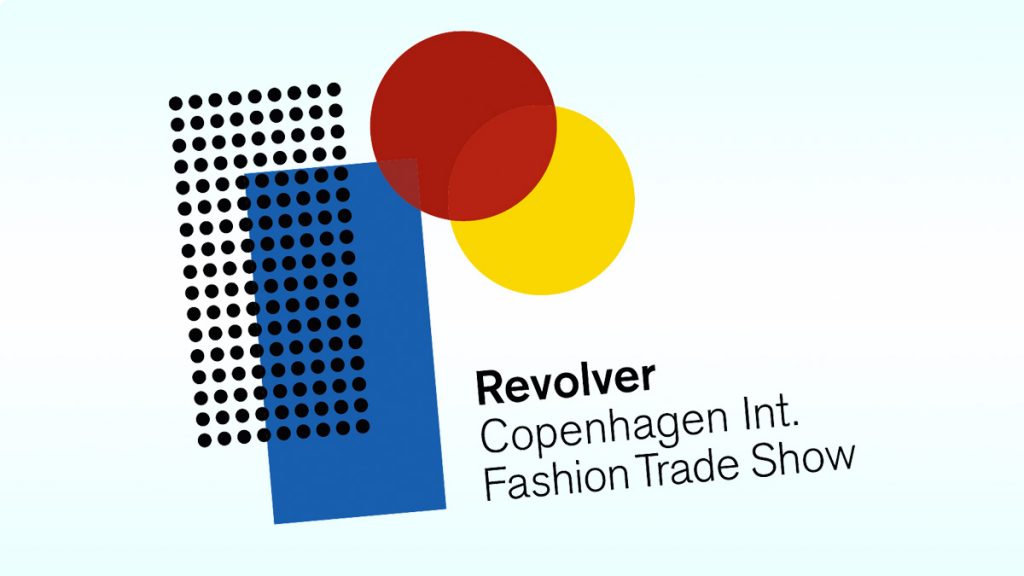
For the last 2 years Frederik has worked as the Director Of Operations & Concept at Revolver Copenhagen Int. Fashion Trade Show. Revolver is a unique order-platform for both mens- and women’s wear that represents the most progressive contemporary fashion brands from Scandinavia and beyond. Being an entrepreneurial creative, Frederik enjoys taking up a diverse range of responsibilities in his current position, including creating new concepts, pushing forward sales, negotiating new collaborations, and working on digital developments.
Interestingly, Revolver is already trying to impact fashion on the aspect of sustainability by using blockchain technology: Working with SBP, a Milan-based traceability company, Revolver is piloting the early stages of putting the entire value chain of a fashion company on the blockchain. To increase transparency, demonstrate product authenticity, and eventually evoke a sense of scarcity, the idea is for all consumers to be able to see how sustainable the company is by following the development of its product from fabric to final form.
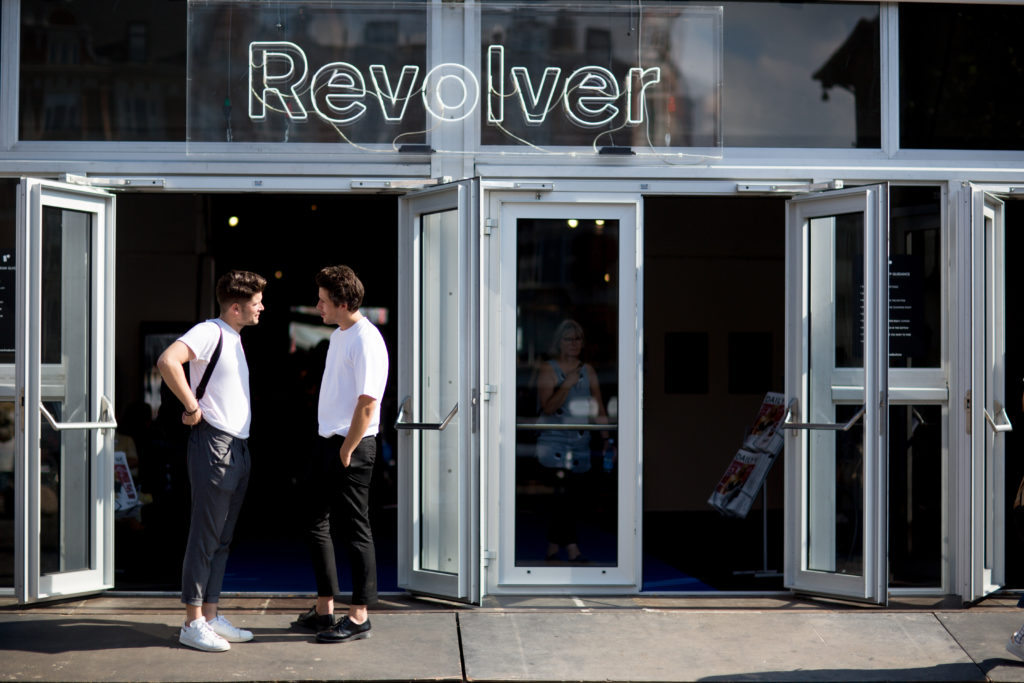
In addition to sustainability, Frederik has also expressed concern about the authenticity of specific fashion products. It is no surprise that counterfeit fashion products are an enormous industry (approx. $1.7 trillion per year according to Forbes), specifically as it relates to luxury goods, and special limited items. In fact, counterfeit production is one of the most profound bottlenecks for many brands with international audiences.
In such a multibillion dollar industry, Frederik sees huge potential for integrating the crypto technology stack with real-world products, to pioneer a new paradigm of ownership, scarcity, and product transparency:
“You need a broad proofing system that takes all of the brands in and plugs it into all of the platforms. In effect we need to make a validating system that would get a company with high demand when the product goes live, like Supreme onboarded to digitally launch new products along with their physical goods. Today their drops are so anticipated – so imagine if every time Supreme made a product they minted an NFT as proof that it was a real product. This would allow you to create this comprehensive validating system that a lot of these reselling platforms like StockX and Grailed need. You can get around a lot of the problems of counterfeiting with a system like this. It’s a real solution to a huge problem in the fashion industry.”
In short, to prove authenticity of a specific product, one might also mint an NFT every time a company releases a new unique product.
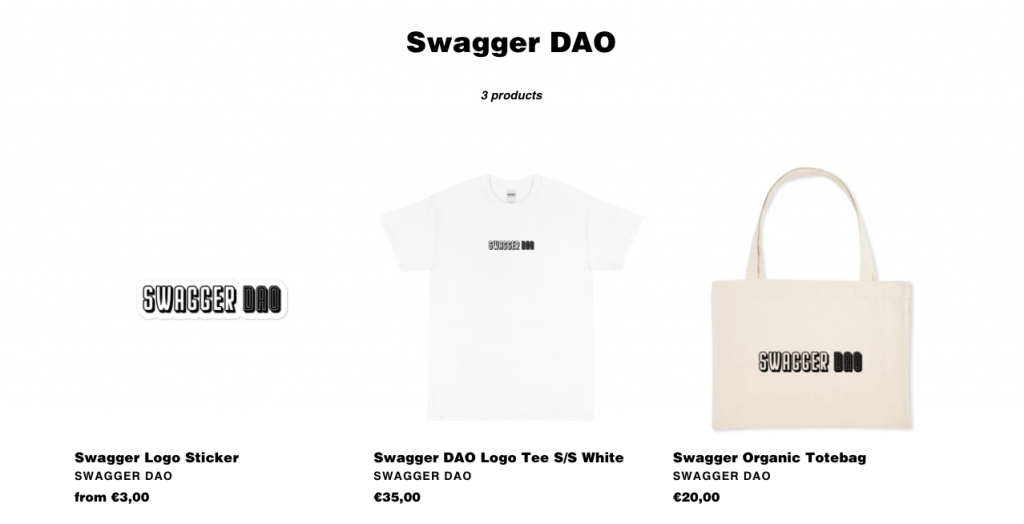
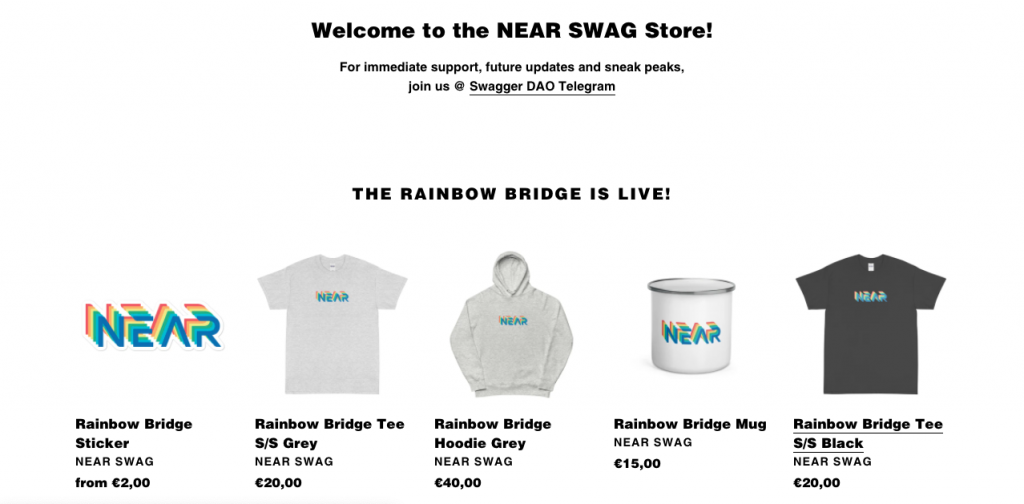
Discovering NEAR, in this context, was the final piece of the puzzle: Swagger DAO is launching as the next chapter in Frederik’s journey, and as one of the most well-connected and cutting-edge projects at the intersection of fashion and technology.
From digitizing fashion to accept crypto payments, to tracking product materials, to creating a new fashion economy built around scarcity and NFT’s, to solving the problem of counterfeiting, Frederik Hanssen hopes to bring the fashion industry into the future on NEAR Protocol.




